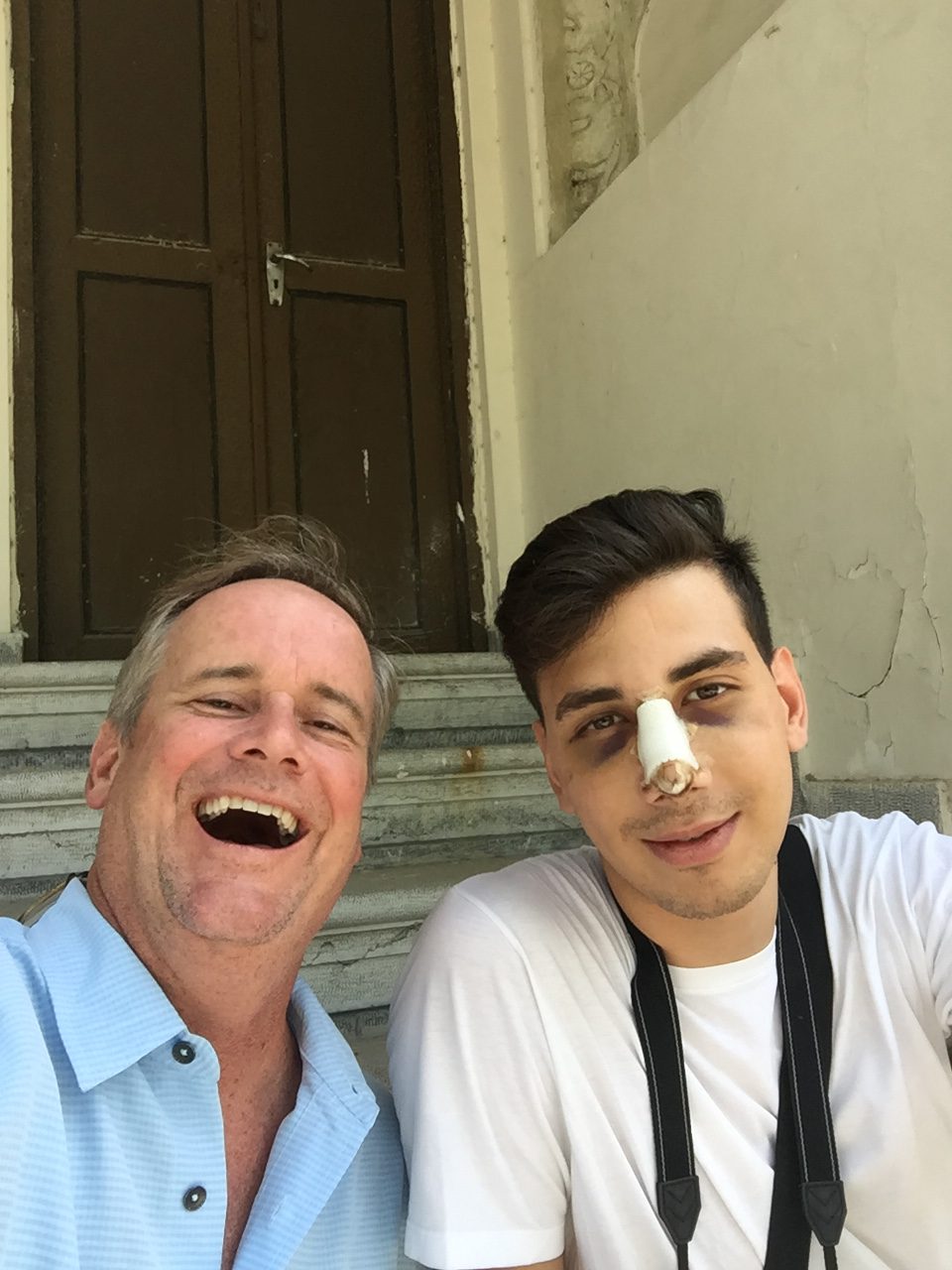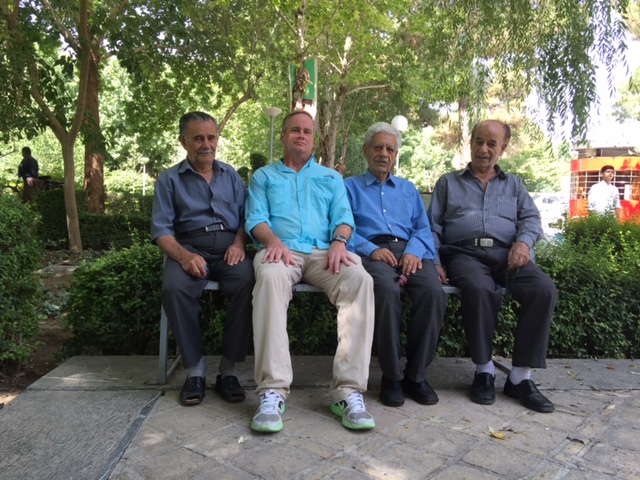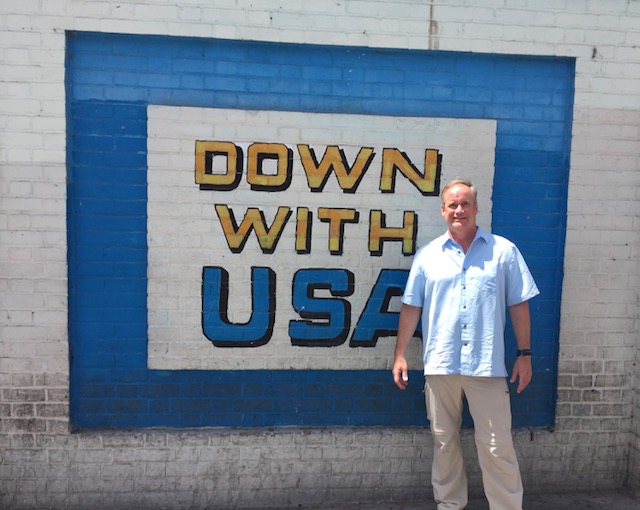
A week prior to leaving for Iran (in ’16) I still did not have my visa and I was getting a bit nervous. This is a country that has had US sanctions imposed on it since the 70s and gets few visa requests from Americans.
I’m sure that my request was thoroughly vetted by the authorities and I’m grateful it was because people-to-people cultural exchanges are invaluable to countries who distrust one another. While in Iran I found a lot of contradictions quite fascinating, and these are some of what I uncovered.

- 16 million of Iran’s 80 million citizens live or work in Tehran, causing unimaginable pollution and traffic. The city is divided into two: North and South. The North is where the progressive, upper class live and is where the newest high rises, towers and shops are located, and where you’ll see more ‘westernised’ Iranians. The southern part of Tehran is older and drab, and much more conservative in dress and customs. This paradigm plays out throughout the country, with a fascinating progressive vs conservative Muslim traditions.
- The 800 lb. gorilla in conversations with Iranians is the US imposition of sanctions on Iran (which were lifted in January 2016). Those sanctions had an impact on the economy as Iran was unable to sell its oil in the world’s marketplace, affecting foreign investment in the country’s infrastructure and core industries, including food production, medicine, construction, transportation, and of course the financial and banking system.
- The sanctions, however, made the Iranians even more independent and they seem to have done just fine with Russia and China as key trading partners. Chinese imports clog Tehran’s streets, and unsurprisingly, many look like Lexus and Kia knockoffs. My driver regularly checked his iPhone that he bought in Dubai. Here’s something funny: even during the sanctions Coca Cola was sold here, because the ingredients were imported from neighboring countries, and all bottling was done in Iran. So much for sanctions, huh?
- Let me be clear. The sanctions weren’t about phones and soft drinks; the real impact was the freezing of 100 billions of dollars in the banking system, and denying Iran the ability to sell oil. Now that those billions have been unfrozen and Iran can sell their oil — look out — this is a country that will have unrivaled economic, political and military influence in the region.
- Many Americans have three impressions of Iran: a) The crazies changing ‘death to America in front of the American Embassy in Tehran b) The humiliation of the hostages being taken and the failed rescue attempt c) The former hardline president Ahmadinejad saying ‘Israel should be wiped off the planet.’ This is not a country of crazy people on horseback, donkey or camel. They are highly advanced, intelligent, with a very high standard of living, and strong national pride.
- This is a country that is trying to move on from these impressions. Moderate president Rouhani was elected by the Iranians as a reformist. Yet the country is still ruled by hardline Shia clerics. The rhetoric has certainly softened, especially now that sanctions were lifted and $180 billion was freed. Is Iran playing nice for now, or is this a long-term trend?
- They are unashamed in their desire to control the countries surrounding them. They have significant influence in Iraq, the Stan countries, Syria, and they control Northern Lebanon through their support of Hezbollah. And they despise Israel.
- This is a country that from the outside appears to be granting more freedom to its people, but its leaders still rule with an iron fist. For example, its citizens have phones and internet, but they cannot use Facebook or Twitter. Only its leaders can! Khamenei’s instagram account shows 10,000 pictures. The state knows best.
- When you walk Tehran’s bustling streets you’ll see some women covered head to toe, and a scarf covering their hair and neckline.
- Things are not what they appear to be in Iran.
- Reforms have taken place with dress codes, dating standards, boys and girls being allowed to interact with restrictions etc, but the country is hanging onto (and leaders are enforcing) some traditions.
- For example, it is unlawful for a woman to go without wearing a scarf covering her hair and neck. Nor is it acceptable for a woman to wear a bathing suit at the beach, yet men can sport weenie bikinis.
- It would not be unusual for the same woman wearing a hijab, if unmarried, to have 5 boyfriends simultaneously, and party (and I mean part-tay) until the early hours of the morning.
- Conservative dress is a social norm, but so too is vanity. There are more nose jobs in Tehran than in any other city on this planet. Teens around the city sport schnauz bandages with pride, as it’s a sign of wealth and success.
- I was told there were 3,000 plastic surgeons in Tehran alone and that even teen boys were getting botox injections.
- I loved the Iranian tradition of “taarof”, in which shop owner, waiter, etc. will refuse payment, until you insist they take it (put it in their pocket). You usually have to insist 3 times before they accept, and if you stiff them they will generally let you know.
- The highlight of my trip was in central Iran in the Zagros mountains, meeting the Bakhtiari nomads. Each year 1 million Bakhtiari travel ~150 miles from the highlands to the lowlands and back. They live in tents, sleep on carpets, and tend to their livestock during the day.




